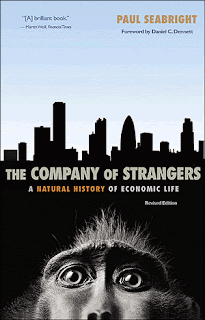The Diamond, Mortensen and Pissarides Nobel: Search and market frictions
Barbara Petrongolo 15 October 2010 The 2010 Nobel Prize in Economics has been awarded to Peter Diamond, Dale Mortensen, and Christopher Pissarides "for their analysis of markets with search frictions". This column explains how their research relates to fundamental economic issues that are both at the core of the wellbeing of society at large and now near the top of many policymakers’ agendas. Various forms of imperfections or “frictions” characterise most real-world transactions. The coexistence of buyers and sellers in a given market, who can in principle agree on a price, may not be sufficient for immediate trade, as both buyers and sellers may need to invest in a costly search process in order to locate matching partners, and eventually need to agree to enter a transaction rather than wait for better trading opportunities. These frictions derive from several sources, including imperfect information about trading partners, heterogeneous demand and supply, slow m...
